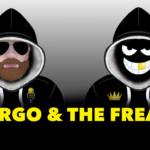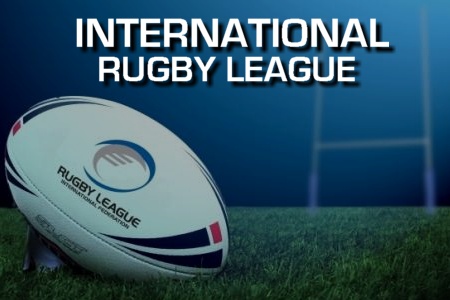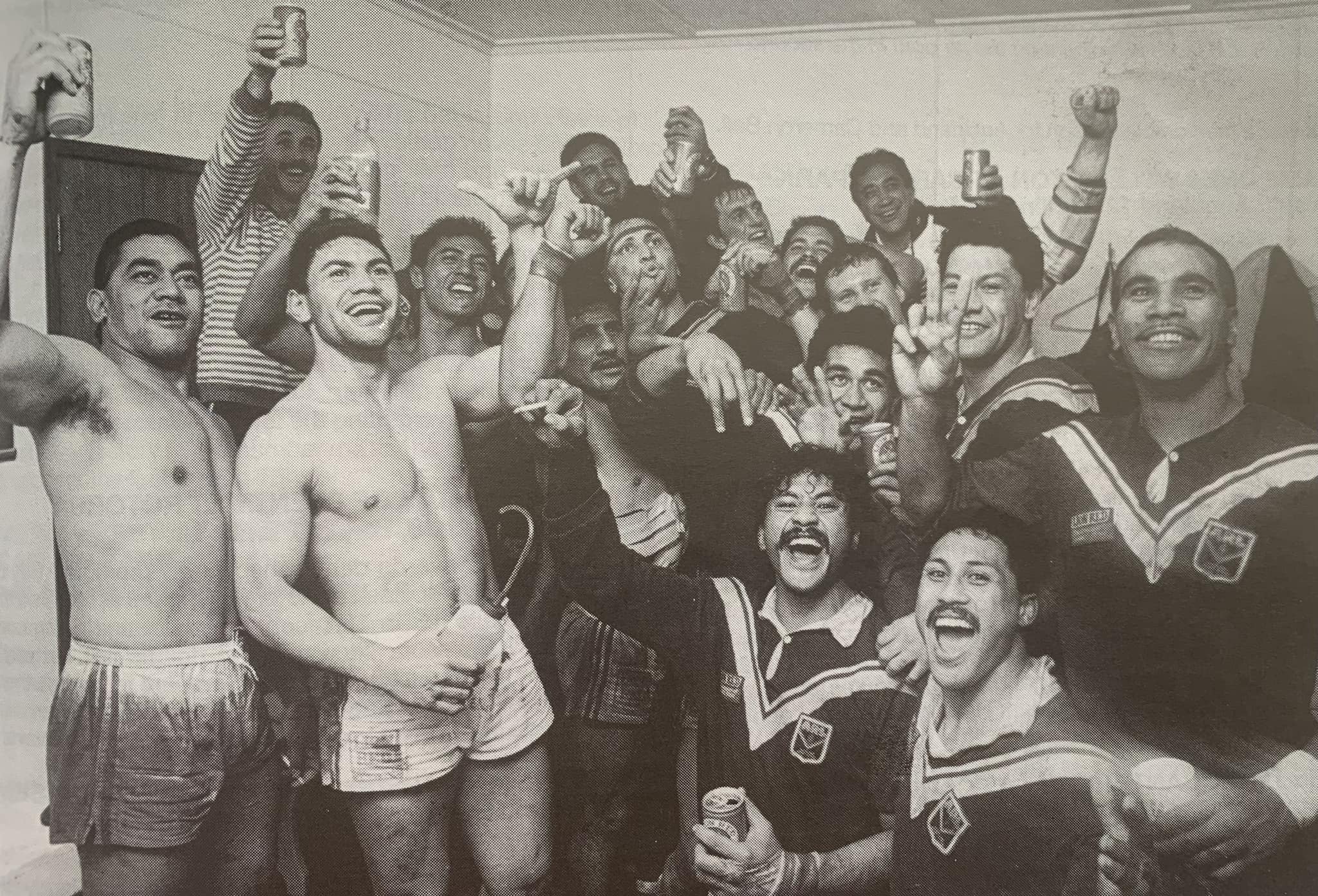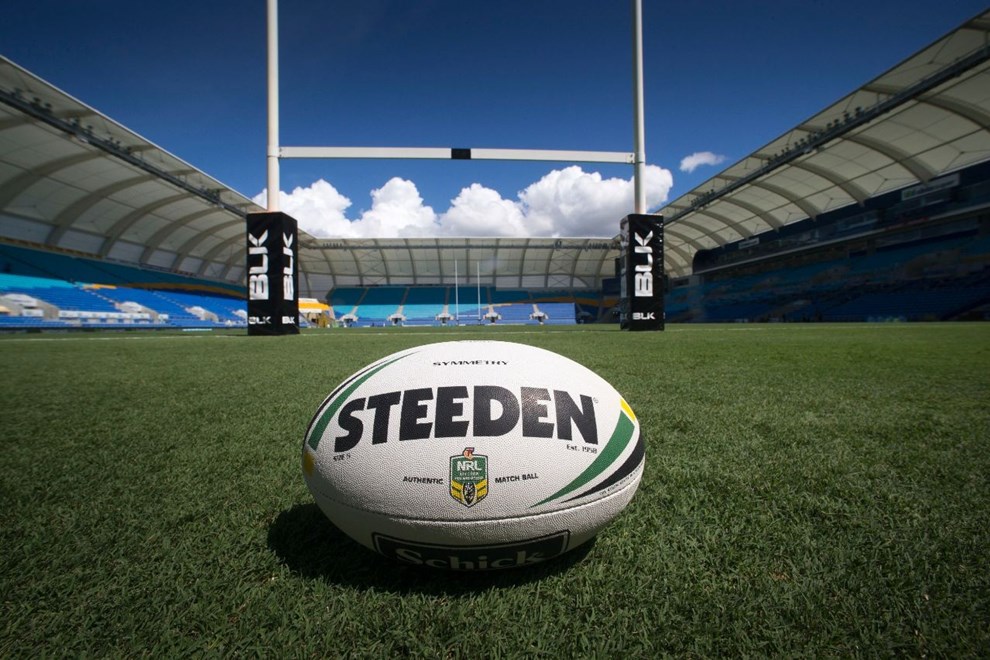As Akuila Uate, a Fijian born and raised player who only recently moved to Australia, was selected by the ARL to represent that Australian Prime Ministers XIII against Papua New Guinea, people who took any interest in seeing international Rugby League retain any credibility were up in arms.
Having played for Fiji within the last 12 months, Uate was not eligible to play for Australia, or any other country for that matter. It also looked to be a case of a top class players being taken away from a smaller Rugby League nation, where he would be a featured player and a great asset, and added to the long list of players Australia has, just another winger we can call on.
Uate was going to make a submission to the fictitious Rugby League International Federation to be allowed to break the international rules.
The basis for this had nothing to do with his love for Australia or his drive to give something back to a country that has allowed him to become a professional sportsmen.
His submission was to be based on the fact that, the club contract he signed has clauses in it that would see him get more money from the Newcastle Knights should be represent New South Wales or Australia.
For Uate, it was about money. There is far more money to be made in playing one State Of Origin game for New South Wales then there is to play an entire career for Fiji.
When Jarryd Hayne’s career was looking like it was going nowhere in late 2008. He was not even in Australian calculations for the 2008 World Cup, so when Fiji came calling, Hayne put his hand up to play for them knowing it would not hurt his future representative hopes in Australia (Such are the ridiculous eligibility rules come World Cup time).
Hayne was a star for Fiji, their best player. He credits his time going back to Fiji, playing in a squad with players that play mostly for the love of the game, and a team where religion is a basis for life, for turning around his career.
Playing for Fiji was one of the best things that happened in his life, and as soon as he got a chance, he turned his back on it because the big money and bright lights beckoned in the form of State Of Origin and playing for the Australian Kangaroos.
Daniel Vidot, born in Queensland and starting to build a reputation for the Canberra Raiders as a very handy winger, decided he wanted to represent Samoa against New Zealand in last weekends Test match against the World Champions.
Pride took a back seat however when he was told that, by representing Samoa, he would not be eligible to play for Queensland for at least two years.
Vidot is a handy player, but no certainty to line up for the Maroons by any stretch of the imagination. However, the possibly hint of playing for Queensland was enough to see Vidot turn his back on Samoa and sit out the match, thereby protecting his State Of Origin eligibility.
Israel Folau was born and raised in New South Wales before moving to Queensland as a teenager. He broke into the Queensland and Australian side at a young age and made a name for himself with his high flying catches leading to tries.
The AFL saw something in his leaping ability, and desperate to get cheap publicity for its sides in New South Wales and Queensland, signed him to the richest deal in AFL history despite the fact he had never played the game, ever.
In signing Folau the AFL stated they wanted him for two main reasons. They wanted him to try and lure the kids of Western Sydney to their game (For which, all of a sudden Folau become a proud Western Sydney boy rather than a Queenslander) and they wanted a Polynesian player to try and crack into a market they have not made any progress in.
Folau was selected for Queensland, which was just what the AFL wanted. The Australian Rugby League however refused to allow him to play for Australia, as he and the AFL wanted. So what happened?
All of a sudden, for the first time in his career, Folau was a proud Tongan who wanted to play for Tonga. Now the Rugby League International Federation stepped in here (And by the RLIF, I mean the ARL) and said no. Its common sense that Rugby League would not want to allow one of its competitors to get a foot in the door with one of its target audiences, with Tonga playing Samoa at Parramatta Stadium in Western Sydney, so they refused to allow him to play.
At which point, Folau wanted to show just what a proud Tonga he was, and run the water as a trainer during the game, a job for which he had no qualifications. Once again, the RLIF said no.
This pissed Tongan management off, who are probably star struck to be fair, and who don’t like being dictated to on who they can and can’t have in their side, which is also fair.
The thing is, Folau had nothing to do with Tonga until it worked for him, and the employer who will be paying him $1.5 million dollars a year.
These things go on and on, and I could list player after player who decided they were a “Proud” something or other while it suited them, until a better offer came along. Then they were a “Proud” something else.
Brad Thorns dream was to play for the Broncos, Queensland and Australia, until he switched codes, then his dream was to play for the All Blacks, until he switched codes. Then his dream was to play for the Broncos, until he switched codes.
Sonny Bill Williams was the best of the lot. His dream was to be a Bulldogs for life, then captain the team. He was a proud New Zealander, and wanted to be captain one day. That was until he decided he wanted to play for New South Wales. At which point, he decided he was a proud Polynesian, a Samoan no less, and he wanted to play for Samoa one day. That was until his dream became playing Rugby Union in France, and possibly for France.
Of course, his dream was always to be a boxer, or at least, he wanted to punch fat guys with no boxing experience for a few minutes in front of lots of people, until such time as his dream became to be an All Blacks player, which he has just been named after playing Rugby Union in New Zealand for all of a few months.
To be fair, he is the gold standard, but far from being alone!
At the end of the day, pride seems to be closely linked to money for most players. You can argue that in a game formed on the basis that a player should be able to make a living playing for his club, that is fine at club level.
However representative football is different. Representative football should be about who you are as a person. Who you have real pride in playing for. A representative player should be compensated for their time and effort, there is no doubt about that. However, real pride comes when you ask the question, would these players line up for this same team if they were not going to earn a cent for their appearance?
Pride is fantastic, but many players are showing that if they can earn a bit of money elsewhere, hell, if there is the possibility of earning money down the line elsewhere, they will ditch their heritage, their country of birth, they will brush it all aside for a bit of coin.
Representative Rugby League should not be about money, it should be about real pride. It should not be about who you feel like playing for at the moment, or who you see as being the best cash cow in the long term.









